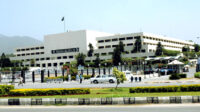Nov 14, 2021: Mixed reactions to Glasgow Climate Pact as UN, US, China welcome deal and activists denounce more babble from two weeks of talks.
The deal is the result of two weeks of tortuous negotiations in Glasgow that had to be extended for an extra day to balance the demands of climate-vulnerable nations, big industrial powers, and those whose consumption or exports of fossil fuels are vital to their economic development.
The overarching aim set by conference host Britain was one that climate campaigners and vulnerable countries had found far too modest – namely, to keep within reach the 2015 Paris Agreement’s target to cap global warming at 1.5 degrees Celsius (2.7 Fahrenheit) above pre-industrial levels.
Global climate talks in Glasgow, Scotland have ended with an agreement that the United Nations has called both a “significant step” and a “compromise”, but some activists have rejected it as a “betrayal of the planet and its people.”
The agreement, approved by nearly 200 countries on Saturday, received praise for keeping alive hopes of limiting global warming to 1.5 degrees Celsius (2.7 degrees Fahrenheit), but many saw last-minute changes watering down language against coal as disappointing.
The revision, promoted by India and backed by China, called for nations to “phase down” rather than “phase out” use of the dirtiest fossil fuel.
The pact also did little to assuage vulnerable countries’ concerns about long-promised financing from rich nations.
Following resistance from the United States and the European Union, the text omitted any reference to a specific finance facility for the “loss and damage” that climate change has already caused in the developing world. Instead, it promised future “dialogue” on the issue.
Alok Sharma, the conference chairman, banged down his gavel to signal that there were no decisive objections from the almost 200 national delegations present in Glasgow, ranging from coal- and gas-fuelled superpowers to oil producers and Pacific islands being swallowed by the rise in sea levels.
US climate envoy John Kerry welcomed the agreement, saying good compromises leave everyone slightly unsatisfied. While the Chinese negotiator Zhao Yingmin echoed that sentiment. British Prime Minister Boris Johnson, the host of the COP26 talks, also remained relatively upbeat, saying, “There’s still a long, long way to go before we can say we’ve dealt with climate change, but the great news is, together, the world has made some important breakthroughs,”
The EU also welcomed the agreement, saying it gave “us a chance of limiting global warming to 1.5 degrees Celsius”. Meanwhile, the representative from Saudi Arabia, one of the world’s largest oil producers, avoided questions, saying all parties were “happy” with the climate pact.
Small island nations, however, said the “incremental progress” at Glasgow was not enough.
“What is balanced and pragmatic to other parties will not help the Maldives adapt in time,” said Aminath Shauna, environment minister for the low-lying Indian Ocean island nation. “It will be too late for the Maldives… We recognise the foundations that this outcome provides, but it does not bring hope to our hearts. It serves as yet another conversation where we put our homes on the line, while those who have other options decide how quickly they want to act to save those who don’t.”
Saleemul Hug, director of the International Centre for Climate Change and Development, was more blunt.
“As far as I am concerned, it is a failure,” he said.
Other activists echoed the criticism.
Prominent environmental activist Greta Thunberg said the talks had achieved nothing but “blah blah blah”.
“The real work continues outside these halls,” the figurehead of the Fridays for Future movement posted on Twitter. “And we will never give up, ever.”
Scientists say that to go beyond a rise of 1.5C would unleash extreme sea level rise and catastrophes including crippling droughts, monstrous storms and wildfires far worse than those the world is already suffering.
But national pledges made so far to cut greenhouse emissions – mostly carbon dioxide from burning coal, oil and gas – would only cap the average global temperature rise at 2.4 Celsius.
However, Saturday’s draft, published by the United Nations, did call for efforts to reduce coal use and also the huge subsidies that governments around the world give to the oil, coal and gas that power factories and heat homes – something that no previous climate conference had managed to agree on.
India – whose energy needs are hugely dependent on coal – made last-minute objections to this part of the agreement.
Britain tried to unblock the issue of climate finance, one of the thorniest, by proposing mechanisms to make sure the poorest nations finally get more of the financial help they have been promised.
The draft urged rich countries to double finance for climate adaptation by 2025 from 2019 levels, offering funding that has been a key demand of small island nations at the conference.
Adaptation funds primarily go to the very poorest countries and currently take up only a small fraction of climate funding.
Britain also said a UN committee should report next year on progress towards delivering the $100 billion per year in overall annual climate funding that rich nations had promised by 2020 but failed to deliver. And it said governments should meet in 2022, 2024 and 2026 to discuss climate finance.
Stay tuned to BaaghiTV for latest news and Updates!
T20 World Cup: Australia, New Zealand vie for elusive trophy






